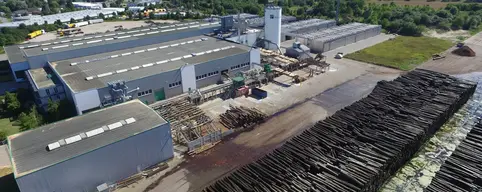

The TVIN factory, nestled in the historic town of Virovitica, stands as a testament to the enduring spirit of craft and industry in the region. Founded in 1913, the company has transcended its origins as a simple steam sawmill to become one of the most renowned furniture manufacturers not just in Croatia, but throughout the former Yugoslavia. Over the course of more than a century, TVIN has maintained a presence in the manufacturing world, adapting to the drastic changes and challenges posed by the times.
TVIN's long-standing operation is a narrative of resilience. Throughout its history, the company has navigated through some of the most tumultuous periods of the 20th century, including two world wars. Such challenges could have easily tipped the scales towards closure, but TVIN managed to adapt and survive. Notably, the complex period of privatization in the 1990s was a test of its ability to thrive under new economic conditions. Where many industries faltered, TVIN learned to negotiate these tricky waters, restructuring and refining its practices to ensure continued operation.
Despite the various upheavals, TVIN has succeeded in maintaining its production capabilities. Initially rooted in the production of wooden clogs and sugar, the town of Virovitica has now carved out a new identity through TVIN's offerings. Furniture designed by the celebrated designer Bernardo Bernardi, for instance, marks a significant cultural contribution by introducing Scandinavian styles into the region. These pieces were then manufactured at scale by TVIN, which solidified its position as a cultural influencer in the sphere of interior design.
While global events temporarily reshaped its operational landscape, TVIN's ability to adapt is a key factor in its longevity. The transition from communally owned structures to a more privatized economy necessitated a reinvention of its business strategies. By aligning its goals with market demands and maintaining a quality-focused approach, TVIN has been able to not just survive, but flourish over the years.
Today, the company proudly stands with a leaner workforce but continues to leave its mark in both domestic and international markets. The range of products has expanded to include not only furniture but also luxury hotel fittings and other wooden products, which are appreciated both locally and abroad.
As TVIN looks to the future, its legacy remains deeply intertwined with its community and workforce, each contributing to and drawing from the reservoir of shared history and experience cultivated over the past century. This mutual investment in durability and quality ensures that TVIN remains not just a symbol of industrial achievement but also a beacon of cultural heritage in Virovitica. Through times of peace and conflict, prosperity and challenge, TVIN’s story is an ongoing chapter in the rich tapestry of regional and national history.



